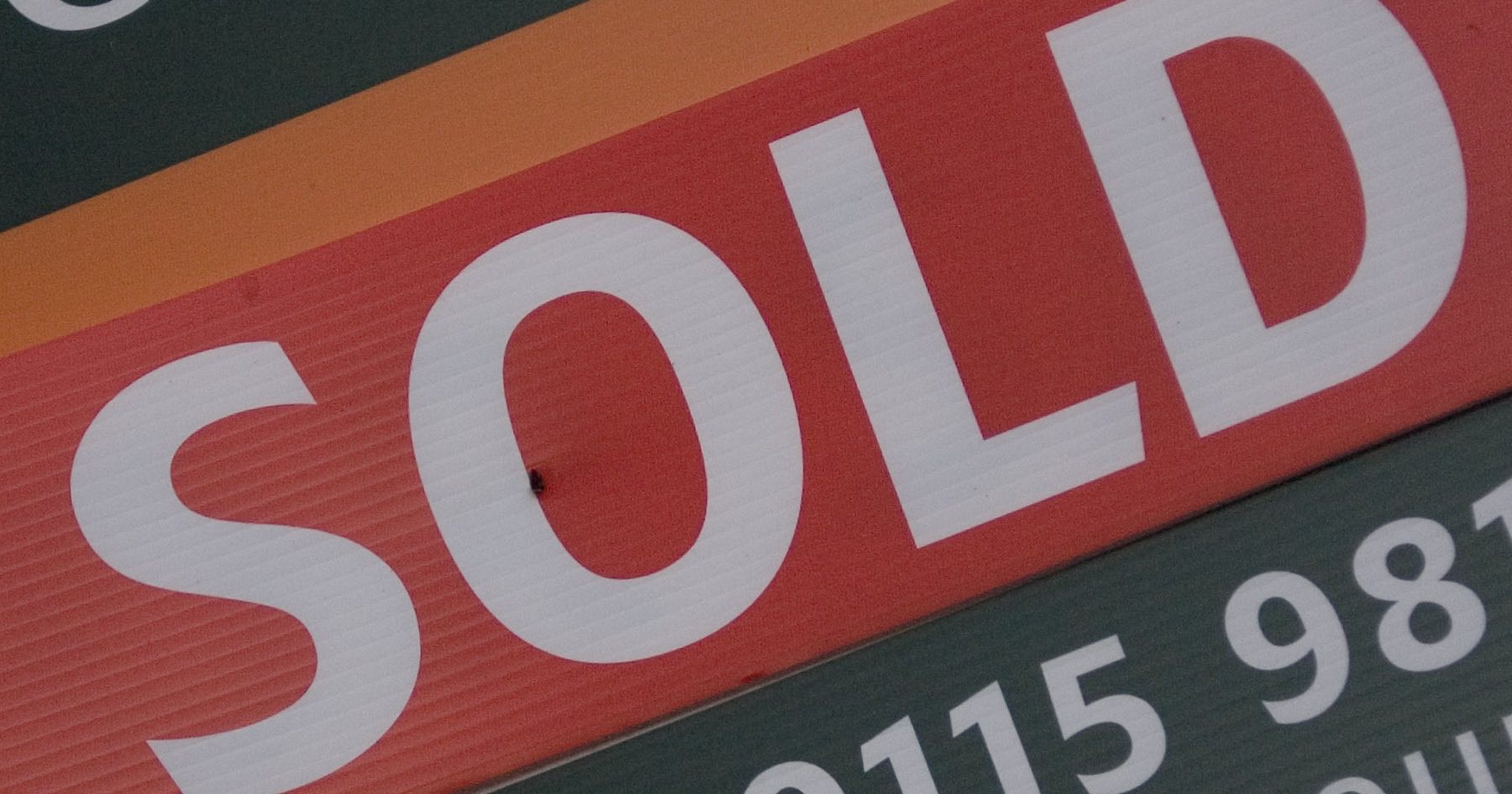or, why flipping your house is an unjust act
When we bought our house in Victoria, BC, eight years ago, we had already been selected for a Habitat for Humanity build. The executive director of Habitat at the time told me that, because of their model, where Habitat holds the loan at very low interest and communities come together around low- to mid-income families, many of their homeowners came out ahead of those who were able to scrape together enough for a mortgage in the market.
I responded to her: “Why doesn’t this model get replicated everywhere?” As a society, we have the means to decentre interest and work together for the common good so that everyone can own a home!
She cautioned me, however.
She had come from a context in Northern Europe where home ownership was not considered a right or a goal. She explained to me that rather than personal ownership, they had a model where public ownership was the norm. This concept balanced security with a need for housing — and created a foundation where one didn’t need to own a home, where one could feel secure without owning the land and house.
Land is not capital to which we have property rights; rather it is the place for which we have moral responsibility in reciprocity for its gift of life. Here is the question we must at last confront: Is land merely a source of belongings, or is it the source of our most profound sense of belonging? We can choose. — Robin Wall Kimmerer, Dear America: Letters of Hope, Habitat, Defiance, and Democracy
She wondered what it was in our consciousness — in our hunger — that would make us want to take on massive debt? And what made us feel like we had a right to own a piece of land?
We left the Habitat project when our real estate agent asked us why we hadn’t considered co-purchasing a house with a willing friend, who had equity and capital (which we did not). That was, and continues to be, a real blessing. We own a home — and have our extended intergenerational family living here — and that’s been a beautiful thing.
Financially, instead of going from paycheque to paycheque to pad a landlord’s wallet, we have a place we can call our own — and have built some of our own equity. For many of us, this kind of collective ownership — which is increasingly common — is the only way we could ever dream of owning a house with our income.
However, as good as home ownership has been for us, there is something that’s increasingly been eating at my conscience.
A recent news article called Victoria’s current real estate market “dystopian.”
“All things are lawful,” but not all things build up. Do not seek your own advantage, but that of others… for “the earth and its fullness are the Lord’s.” — 1 Corinthians 10: 23-24, 26 quoting Psalm 24 (NRSV)
Since we co-purchased, I’ve watched this market heat up to red hot. When we bought our three-suite house, it was assessed at around $650,000 and we bought it for under $700k — a number that, at the time, felt astronomical to me. That was before waves of folks moving here from even hotter real estate markets drove demand and prices up. And now those fleeing this city are doing the same to the small towns all around this island. And though the hunger for property ownership from individuals and families is surely a factor to be reckoned with, the bigger issue is real estate speculators, who now outpace first-time buyers in my home province of Ontario. Real Estate Investment Trusts (REITS) have been buying up huge swaths of rental properties and driving up the market, as housing is nothing more than a commodity and is traded as such. Starlight Investments are the biggest landlord in my city of Victoria — they own 60,000 units in Canada — and they’re all about the value extraction model. Add to REITS the proliferation of commercialized short-term rentals (e.g., Airbnb, Vrbo) — which are only adding to this dystopia.
You are in for trouble! You take over house after house and field after field, until there is no room left for anyone else in all the land. — Isaiah 5:8 (CEV)
In the eight years since we purchased, the assessment on this old house has nearly doubled to $1.2 million. I think we could sell it for more than $1.5 million. Even in a co-ownership, where our friend fronted the down payment and co-owns 50/50 with us, we would come out with hundreds of thousands of dollars if we chose to sell now. If we wanted, we could flip our house and get something bigger and better. Maybe even give a few crumbs to the poor! And possibly even get more houses if we flipped again! All because we had connections and enough cash at the right time. And for those who have even more cash, more equity and more income — the market is their oyster! Imagine how this works beyond the individual, when you’re a corporation doing the same thing.
And as much as playing that market is tempting for some of us, I increasingly wonder if one can be considered to be a moral person when we profit off the earth? I wonder if we can be ethical when the houses we own, and our part in the market makes it difficult — even impossible, for others to have a home? I wonder about the impact of the market, and our actions in it, on those without homes, those who are underhoused, those who are renting.
The land must never be sold on a permanent basis, for the land belongs to me. You are only foreigners and tenant farmers working for me. — Leviticus 25:23 (NLT)
Let me ask a blunt question: Do you think you can flip your house for personal profit, to climb a ladder you don’t really need to climb without engaging in an act of economic and racial aggression?
With the dystopian state of this market, those who speculate in housing, those who are driving up prices, those who flip properties so that they can go higher up on the ladder of wealth can no longer be considered ethical and just people.
Yes, you could tell me it’s the system — and I’d agree with you — but that doesn’t justify our collusion with it or our willing participation in it. Homeowners like me, landlords, financial institutions, REITS and real estate agents are implicated in a system that commodifies land and that, by our actions, makes home an elusive thing — and disproportionately more so for the poor, for women, for the young, for newcomers, and for racialized individuals, families and communities.
And we need daring dreamers to live into other ways of being.
‘…I was a stranger and you welcomed me…’ ‘Lord… when was it that we saw you a stranger and welcomed you…’ ‘Truly I tell you, just as you did it to one of the least of these who are members of my family, you did it to me.’ — Matthew 25, selected verses (NRSV)
What’s clear is that for many, land, and the buildings that sit on top of it, have become little more than a commodity for trade. The 10,000 vacant homes in my city attest to this. Notions of the sacredness of land and of making home have been lost and consumed by a hungry real estate beast. Notions of the common good have been lost with the allure of home ownership.
As deflating as that all is, others in my sphere have been challenging capitalist and colonial concepts of land. They have been listening to traditional Indigenous voices, as well as voices from the great spiritual traditions: the earth is not for sale. It does not and cannot belong to one person. It is sacred. Home. Family. Earth. Place. Now these are things to invest in. And we have the models out there: land trusts, public housing, and housing co-operatives are among them. But the market is set up to discourage these transformative approaches — even for those of us who have equity.
The way of Jesus is radically different. It is the way not of upward mobility but of downward mobility. It is going to the bottom, staying behind the sets, and choosing the last place! — Fr Henri Nouwen
I’m part of a faith-based community — and so it is that requests for hospitality often come our way. This week it’s a Syrian refugee. Last month it was a person who lives rough who had a bike accident. A woman and child fleeing a violent situation. A person who struggles to find a space due to health issues… It’s heartbreaking.
With those human stories in mind, I’d like to humbly underline the proposal here: to play in this market, to profit from it, without some commitment to re-commoning the land, to creating space for not-for-profit hospitality, to making a world where there are more spaces to create home is unjust and immoral and is bred in a colonial and consumptive attitude toward the land. What would it mean for individuals, families, corporations and churches to radically shift our conceptions around land “ownership”?
The good news is that, though it’s slow, attitudes are changing.
I’ve been hearing about more and more people banding together to turn their equity into co-operative or commonly held land trust options, more and more folks who are looking at divesting from this market, rather than shamelessly profiting from it.
“I want churches to unmask the developers. The most hidden people on the planet are not the CEOs of fortune 500s or the IMF or World Bank… These people are making the most fundamental decisions of our existence… [Let’s] start a movement where those people are known… Decisions are driven by building profit… The immorality of the structure must be challenged… Until you put on the table those who control place, so much of what we want to see happen in the world will not happen. If I control the land, I control the shape of living.” — Willie James Jennings (on the Inverse Podcast).
There are whole websites emerging about such divestment — transforming your equity into creating commons — and there are people who are deeding away their land to re-commoning, sometimes to the Indigenous communities the land was stolen from. I was recently on a call of folks trying to form co-operatives, among them a culturally diverse group of millennials who have had enough of this market.
The tide is turning. The challenge to divest from a violent and privileged system of ownership and land use is emerging.
How will we respond? How will we land- “owners,” individual and corporate, let go of our privilege to be part of making a world where it’s easier to make home?



